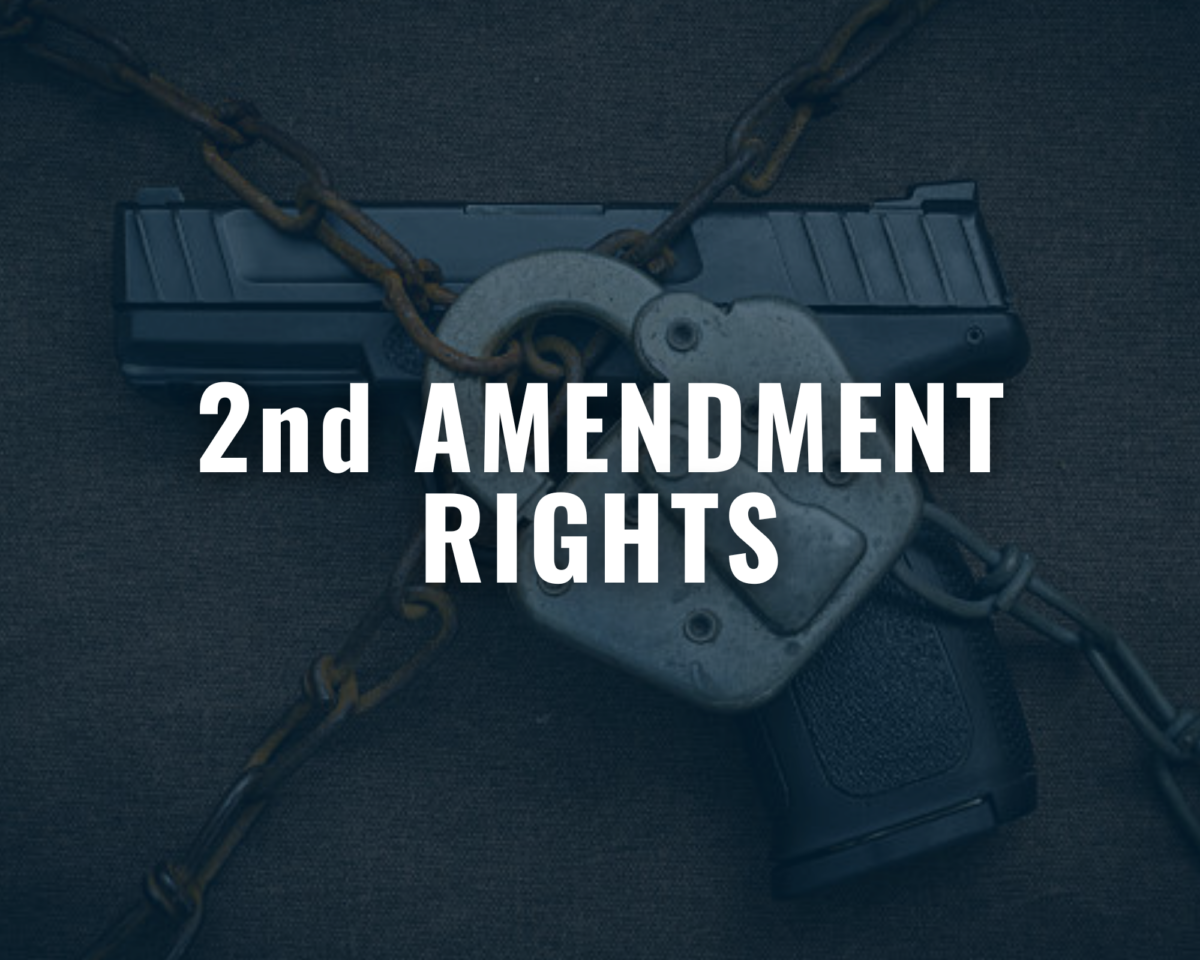What You Need to Know:
The following summary consists of bills we've highlighted that are specific to our focus, expertise, and interests, or made it to our watch list.
- To view the actual bill language or see who is sponsoring it, the bill title is linked for your convenience.
- Bills are listed in numerical order by chamber.
- The color coding for bills is as follows:
Bill statuses will be listed as follows:
- PASSED = Both chambers voted in favor (** If it has only passed one chamber, which one will be notated 'PASSED the House.').
- SIGNED = Both chambers voted in favor AND the Governor has signed the bill.
- DEFEATED = The bill did not receive enough votes in either one or both chambers.
- In COMMITTEE = The bill hasn't been heard yet, but has been filed and assigned to a particular committee.
- TABLED = The bill began the process of being heard in that committee or chamber, but was set aside to no longer be considered (** Where the bill was tabled will be notated, 'TABLED in the House.').
- On READY LIST = Passed the committee and waiting to be heard on the floor (** which chamber it is coming from will be notated 'On the Senate READY LIST.').
2nd Amendment Rights
Bill Status: In HOUSE COMMITTEE
Ammunition that is sold or displayed in such a way that a customer can obtain it without assistance will be a civil penalty.
Arms dealers applications must also state their policies on theft and loss prevention, and include records of ammunition thefts from the previous year.
Bill Status: In HOUSE COMMITTEE
The 2nd Amendment guarantees the right to bare arms without infringement. Limiting where carry can happen becomes a slippery slope that goes directly against that right.
Bill Status: In HOUSE COMMITTEE
There was much back and forth with HB 155 and it is still in the process of debate. The initial part of the bill makes it a misdemeanor to not have a firearm stored in an approved locked container while in a vehicle.
A number of amendments were offered, but only one was passed and then was amended itself. HA 3 was eventually added so the ‘unsafe’ storage is not applicable to those with a concealed carry license. This means that a person with a concealed carry license (CCL) would not have to have their firearm in a locked container while in a vehicle, but could have it on their person. The amended version of HA 3 also included a glove compartment as a ‘locked container.’
After passing in the House, HB 155 moved to the Senate where Senator Sokola filed an amendment to remove the previous provision made for holders of a CCL. Since the bill was amended before passage, it has to go back to the House to have the new amendment voted on. If passed, even individuals with a CCL will have to place their firearm in a locked container of some sort when they exit their vehicle.
With all of the other gun bills limiting exactly where people can carry, a greater number of CCL holders will have to have their firearms locked in their vehicles.
Bill Status: PASSED
HB 201 makes possession of a firearm or deadly weapon in a school or recreation zone a felony. There were multiple attempts to amend the bill, but only two amendments stuck in the end.
House Amendment 3, offered by former Speaker of the House Pete Schwartzkopf, did three things:
- Allow DSCYF and probation/parole officers to carry a firearm in school and recreation zones when acting in their official capacity;
- Include BB guns in the definition of firearms and deadly weapons; and
- Make student possession of firearm/deadly weapon punishable by a minimum 180 day expulsion.
The amendments offered to make the possession a misdemeanor instead of a felony as well as the exemption for those with a CCL were both defeated.
One of Sen. Pettyjohn’s amendments were finally accepted after two initial tries were defeated. Pettyjohn’s amendment clarifies that that:
- Crime of firearm possession be limited only to school zones and not recreation zones as well; and
- Within that recreation zone, it is only unlawful if it is a firearm, and not other items defined as ‘deadly weapons,’ such as a BB gun;
- This amendment also ensures that police officers or constables employed by said recreation zones are exempt.
A bill like this must be put up against the 2nd Amendment, as the authority on all things firearm. It literally says that the right to keep and bear arms, ‘SHALL NOT BE INFRINGED.’ To infringe is be to limit, undermine, or even encroach upon, all things that HB 201 does.
One of the most memorable stories of heroism in the Uvalde shooting was a father who borrowed a shotgun and ran to the school to assist in getting kids out safely. Though he actually was a border patrol agent, he was off-duty and not at the school in any official capacity. If HB 201 were in place, he would’ve been guilty of a felony for possessing a firearm in a school zone.
Bill Status: PASSED
Similar to HB 201, HB 202 seeks to infringe upon the right to keep and bear arms by limiting the ability to possess a firearm while at a polling place.
An amendment was offered by Rep. Spiegleman to clarify that ‘polling location’ does not include the outside parking lot.
Outside of this amendment, there are few exemptions within HB 202 to allow for possession in a polling place if an individual is walking through to an area that is not otherwise prohibited to carry.
As mentioned in the summary for HB 201, it is vastly important to measure this piece of legislation up against the authority of the 2nd amendment. HB 202 serves as a direct infringement upon the right to keep and bear arms.
Bill Status: In COMMITTEE
Prisoners are able to be freed on bail, unless it’s a capital offense. HB 251 would also make possession of a firearm during the commission of a felony also unavailable for bail.
Despite all of the erroneous bills in the name of protecting against gun violence, HB 251 would actually be a good way to do this. There is no infringement on the rights of law-abiding citizens, as protected by the 2nd Amendment. Many individuals that are released on bail for crimes that are associated with violence in some way, commit another crime of violence while out on bail. By not allowing them to post bail, it gives the justice system time to do its job before anyone else has the opportunity to be hurt.
As the first leg of an amendment to Section 12 of Article I in the Delaware Constitution, HB 251 will need to pass two consecutive sessions. It will come up in 2024 and then again in 2025 if passed. Both times will require a 3/5 majority vote.
Bill Status: In SENATE COMMITTEE
HB 224 narrows the definition of a firearm within the criminal code to exclude a BB gun. The definition of firearm in DelCode could literally also include a slingshot. The new definition would be more closely aligned with what is present in federal law.
Bill Status: PASSED
As a concurrent resolution, SCR 68 is not an actual bill to enact a policy. Rather, it is a statement of recognition held by both chambers. They are agreeing to recognize the first week of June as the “Delaware Gun Violence Prevention Week.”
As part of this gun violence week, the General Assembly discusses their commitment to ‘reduce gun violence, pledge to store all firearms securely, and encourage gun owners in our State to be safe and responsible.’ Though none of these things sound bad or not worth recognizing, we have seen some of the ways in which they intend to enforce these thoughts.
Yes, we can recognize the fact that there are individuals who use firearms to cause great harm to others. No, we should not punish the law-abiding citizen and disable their ability to protect themselves all in the name of creating a façade of safety.
Bill Status: PASSED
Previously in the month, a bill was filed to redefine a firearm and explicitly state that a BB gun was not included. This concurrent resolution seeks to create a taskforce that would study the potential impact of having altered the definition.
Does it make the most sense to create a report to study impact prior to the implemention of a policy or is doing so ex post facto sufficient?
Bill Status: On HOUSE Ready List
Among all the gun related bills this half of session, SB 2 arguably got the most attention. The goal of SB 2 is to require a permit for purchase or transfer of a firearm. Only current law-enforcement officers, ‘qualifying’ retired law-enforcement officers, and those with concealed carry licenses are exempt.
Within the permit application, the applicant must include personal information such as their national origin, English language proficiency, and distinguishing physical characteristics among other things. An application made with a firearm dealer must be provided to the State Bureau of Identification (SBI), whom will then be responsible for completing a background check. It is essentially creating a registry of those who have applied to purchase a firearm.
A firearm training course must also be taken by the applicant, no more than 5 years prior. The Department of Safety and Homeland Security is required to develop and administer a voucher program for individuals that are not financially able to complete the firearm training course requirement.
This permit is only good for 1 year, meaning that an individual that isn’t exempt must obtain a new permit annually and a new firearm training course every 5 years.
Because of the voucher program required within SB 2, the bill requires a fiscal note be added. It passed the Senate, completely by party lines, and is still in the Appropriations committee of the House.

